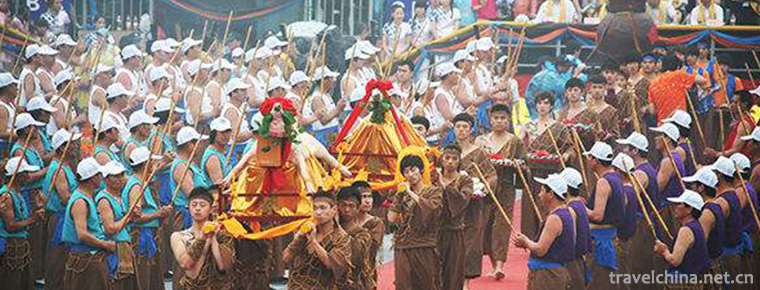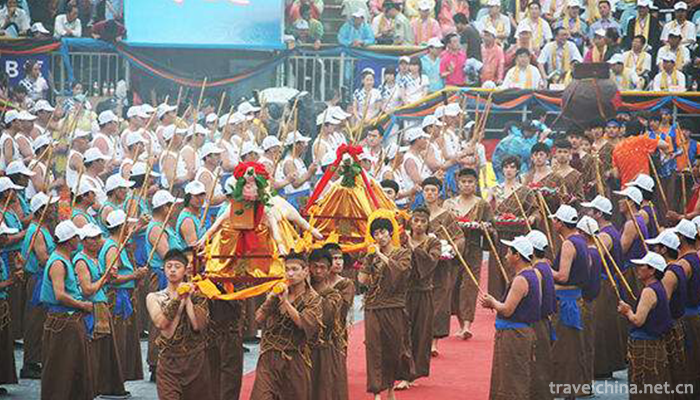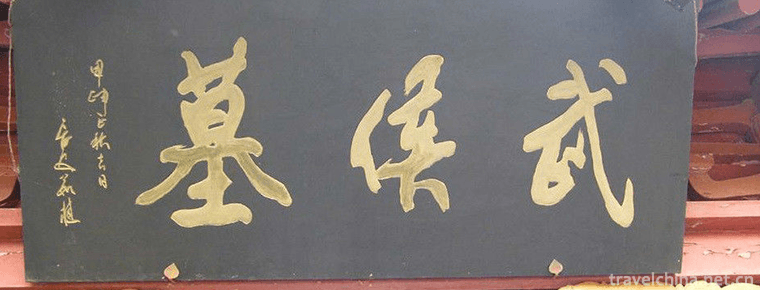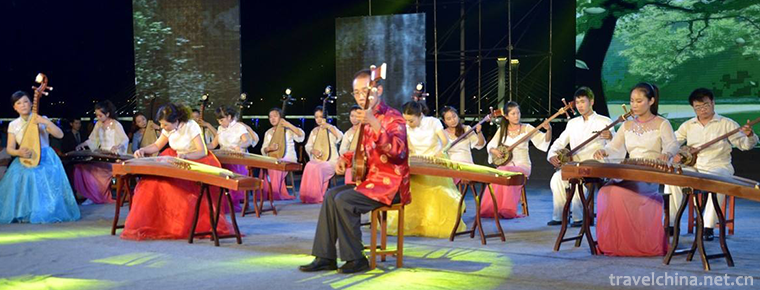2019-02-24

- By ChinaWiki.net
- Chinese Edition
- 2019-07-14
Fishermens Opening and Xieyang Festival
Fishermen's opening and Xieyang Festival is a special folk activity in coastal areas of China. It is mainly spread in Xiangshan County, Daishan County, Rongcheng City, Rizhao City and Jimo City in Zhejiang Province and Shandong Province. The fishermen's Ocean-Opening Festival in Xiangshan and Daishan of Zhejiang Province is a folk activity for local fishermen to pray for peace and harvest when they go out to sea. The Xieyang Festival is a folk activity held by fishermen to thank the sea for their gift after the fishing boat returns safely from sea.
As a spiritual activity to express fishermen's inner desire, Kaiyang Festival and Xieyang Festival take sacrifice as the core, folk literary and artistic performances as the main axis, contain a variety of cultural contents, and show the characteristics of entertaining gods and people. According to records, the fishermen's activities of opening the ocean and Xie Yang Festival in Xiangshan have a history of more than 1,000 years, and the most prosperous period was from Yongzheng Period in Qing Dynasty to the Republic of China. The main content of the festival is offering sacrifices to the sea. Its great influence, wide participation and long history are rare among many fishermen's customs in Zhoushan Islands.
Every fishing season, the ceremony of offering sacrifices to the sea is held during the opening and Xieyang Seasons. Fishermen call it "Xie Long Shui Jiu" or "Xing Wen". In history, Daishan sacrifice to the sea was divided into official sacrifice and folk sacrifice. The etiquette and rituals were well-established and the procedure was complete. At present, some fishing villages in Daishan still follow this traditional folk custom. As the representative of Zhoushan folklore, Kaiyang and Xieyang Festivals reflect the fishermen's belief and worship of the Dragon King and the sea gods in the East China Sea, and show the wisdom of the people living in harmony with nature along the eastern coast of China.
Yuanchuang village in Rongcheng City, Shandong Province, has a unique geographical location and climate. Every time the valley rains, deep-sea fish and shrimp will follow the rule of seasonal migration to the Yellow Sea offshore waters in the south of Yuancheng village. Therefore, there is a saying that "fish and birds do not break their promise" and "all fish come ashore in the valley rains".
The fishermen in the courtyard placed the peace and harvest of their fishing career on the Dragon King of the East China Sea. They chose to worship the sea on a rainy day in order to express their devotion and pray for the protection of the Dragon King. Two towns, Shijiusuo and Peijiacun along the coast of Rizhao, Shandong Province, have been engaged in fishery production since ancient times. Local legends say that the thirteenth day of June is Hailong King's birthday. At that time, fishermen gather at Longwang Temple to hold worship activities and arrange fishery production in the coming year. This custom of worshipping sea gods was formed in Hongwu period of Ming Dynasty. It is a concrete manifestation of fishermen's desire for boat safety and fishery harvest.
The Internet Festival in Zhougezhuang Village, Tianheng Town, Jimo City, Shandong Province, also known as "Sacrifice to the Sea", is a grand festival for local fishermen. Internet-surfing ceremony first appeared in Yongle period of Ming Dynasty, and then gradually evolved into a kind of folk custom activity, which has been handed down till now. Zhou Gezhuang Internet Festival is held around the annual Valley rain. The fishermen in the village who are about to go to sea offer sacrifices to the sea god with piety in order to pray for a safe harvest.
Fishermen's Ocean Opening Festival and Xie Yang Festival are typical representatives of traditional marine culture. They have important reference value in the study of folklore, religion, social psychology and local history and culture. It is necessary to take measures to protect and inherit this ancient marine folklore.

Ask a Question
Your email address will not be published.



0 Questions